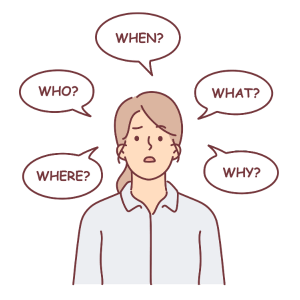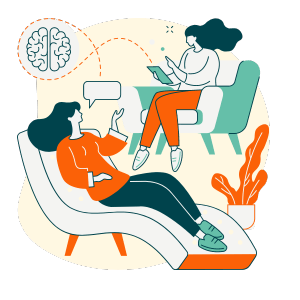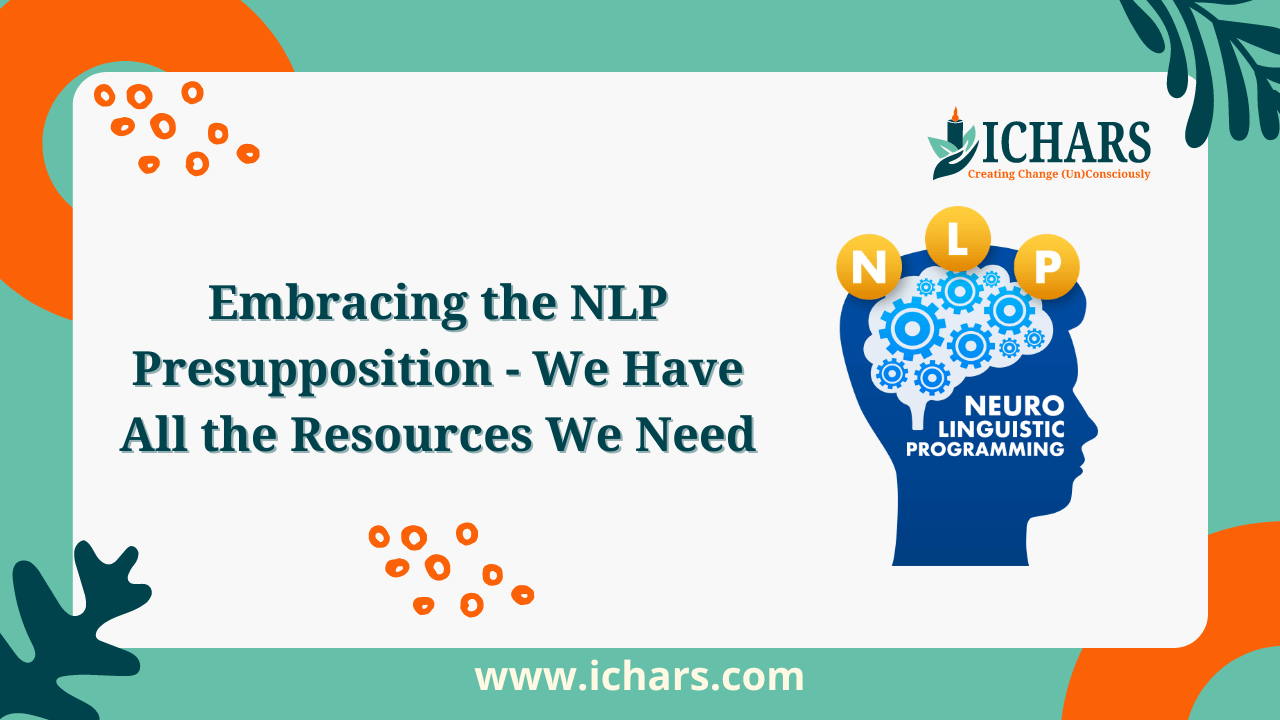Sarah had been struggling with anxiety and lack of confidence for years. She constantly second-guessed herself and felt paralyzed when facing even minor decisions. Despite trying different therapies, she still felt stuck, inadequate, and lacking the tools to move forward.
That all changed when she started working with a coach trained in Neurolinguistic Programming (NLP). The coach helped Sarah realize that the resources she needed – whether they currently existed within her or not – were fully available. She just needed to learn how to access, integrate and even develop the abilities required to overcome her anxiety and build confidence.
Through NLP techniques like anchoring positive states and reframing limiting beliefs, Sarah began seeing herself in an empowered new light. The resilience, wisdom and strength she already embodied was amplified. And for any missing pieces, she now had the resourcefulness to seek out new knowledge, skills and support.
Sarah’s transformation was remarkable – her anxiety diminished, self-doubt dissolved into assuredness, and she started living with a renewed zest. All because she embraced the core truth that we all already have what it takes to thrive.
Understanding the Presupposition: We Have All the Resources We Need

This NLP presupposition refers to the fundamental belief that each person possesses an innate wellspring of wisdom, abilities and strengths to effectively handle any situation or achieve any desired outcome in life. These resources can take many forms – from thoughts, beliefs and emotional states, to skills, knowledge and sources of support.
The key idea is that we all have everything required within us already, whether those resources currently exist in a tangible form or not. If certain specific resources seem lacking, this presupposition views us as having the deeper resourcefulness to develop, learn or obtain those missing pieces.
This presupposition empowers the belief that we are not inadequate beings in need of being fixed, but rather fully resourced individuals who can unleash our vast potential by systematically accessing and integrating our intrinsic resources as needed.
The Psychological Basis:
This NLP presupposition – that we all have the resources we need – aligns with psychological theories about our vast reserves of human potential. According to Maslow’s self-actualization theory, we all have an innate drive to fully develop our capabilities and become the best version of ourselves. Rogers’ person-centered approach viewed humans as fundamentally resourceful, able to actualize our potential given the right conditions.
NLP takes these empowering perspectives even further by presupposing that we have the resources for effectively handling any situation or achieving any desired outcome.
Examples of From Different Contexts:
The NLP Presupposition – We have all the resources we need can be applied to diverse personal and professional situations:
- A student overwhelmed by academic pressures has the resources of discipline, time management abilities and stress-coping strategies within. If lacking in any area, they have the resourcefulness to enhance those capabilities.
- An entrepreneur struggling to grow their startup possesses creativity, problem-solving abilities and leadership resources. They also have the ability to learn any new business skills required.
- A parent dealing with challenging child behaviours has the patience, wisdom and nurturing resources within. They can also seek out parenting courses or counseling to expand their skills.
- An athlete struggling with a performance plateau has determination, mental toughness and talents. They can also develop new techniques, strategies and mindsets to break through.
The key is realizing that any missing resources, whether internal or external, can be obtained through our intrinsic resourcefulness.
Why It Matters for Psychologists and Coaches

By integrating the NLP Presupposition – We have all the resources we need, psychologists and coaches can catalyze transformative growth in their clients. It creates an empowering perspective that builds self-efficacy, hope and intrinsic motivation. Clients realize the power to create desired changes comes from within, not from being fixed externally.
Psychologists and coaches act as facilitative guides, helping clients fully access their inner resources while providing support to strategically develop any missing pieces. Rather than being the experts with all the answers, they collaborate with clients to co-create personalized paths forward using the client’s deepest wells of potential.
Techniques From Cognitive Hypnotic Psychotherapy

Cognitive Hypnotic Psychotherapy (CHP) offers a comprehensive approach for helping clients connect with, amplify and expand their intrinsic resources by incorporating this NLP presupposition, “We have all the resources we need”, in their lives. Key techniques include:
- Resource State Induction: Using hypnosis to facilitate a profound sense of internal resourcefulness that becomes an anchored state.
- Resource Integration: Synthesizing clients’ diverse positive traits, abilities and experiences into an empowered self-concept.
- Resource Restratification: Reframing and amplifying existing coping strategies into more powerful, versatile resources.
- Resource Installation: Providing suggestions to amplify and condition specific resources like confidence and resilience.
- Resource Expansion: Guiding clients to strategically develop new skills, knowledge and support networks to access any missing resources.
Challenges and Considerations
For some clients conditioned to feel inadequate or powerless, fully embracing this presupposition of having all the resources can be challenging initially. Psychologists and coaches must build trust, dispel limiting beliefs, and provide an empowering environment for clients to gradually open up to their vast capacities.
There’s also a balance to strike – the presupposition doesn’t mean clients can handle everything alone. The role of the psychologist/coach is to help identify areas for additional resource development, then fully support and guide that expansion process.
Conclusion
The NLP presupposition that we all have the resources we need to thrive is a profound perspective on the boundless scope of human potential. By integrating this truth into their work, psychologists and coaches can empower clients to become the architects of their own growth and desired transformations. No longer is change about being fixed – rather, it’s about unveiling, amplifying and strategically expanding our intrinsic resourcefulness to create the lives we want to live.

